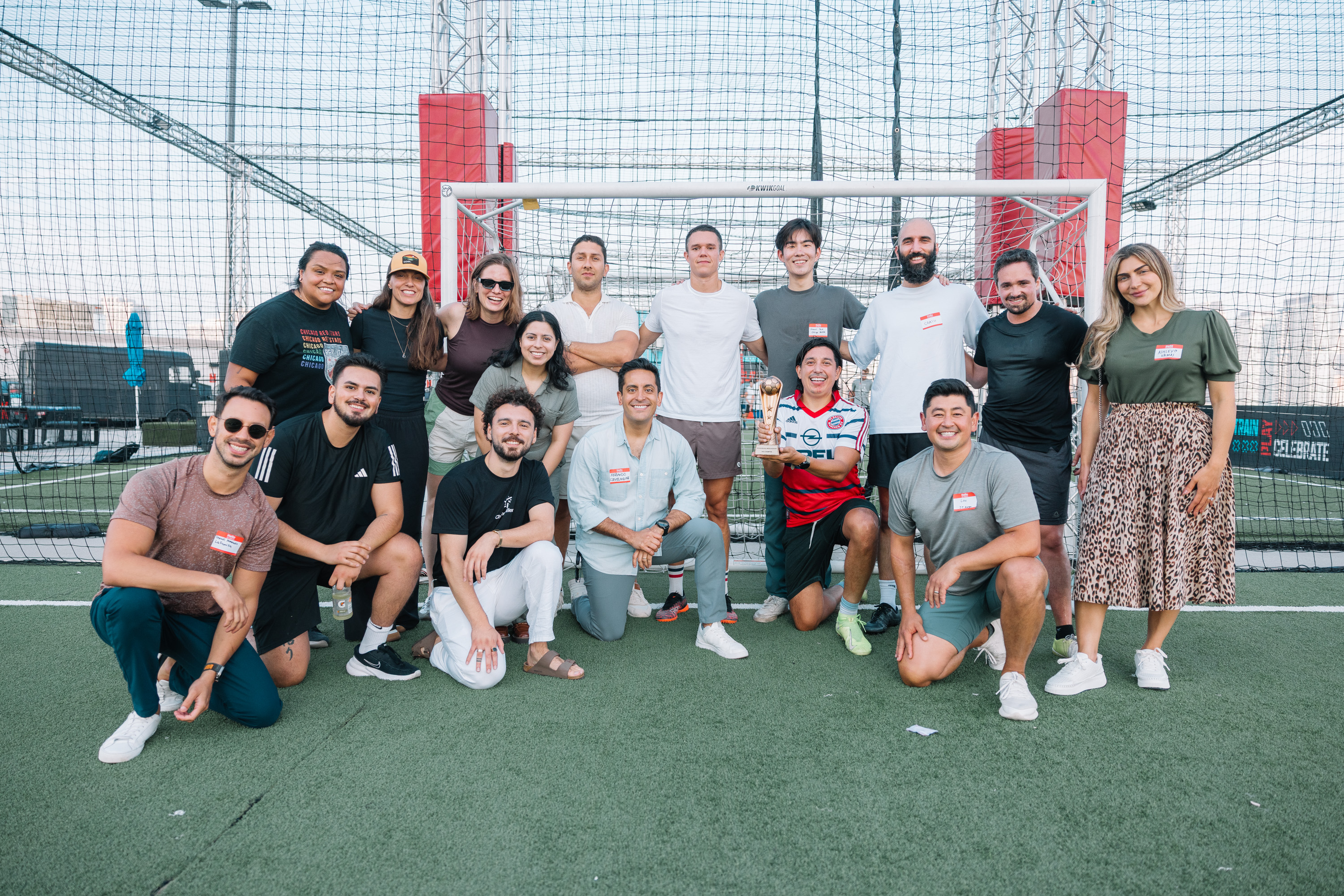Bootstrapping a Marketplace: How Bilin Academy Grew from a Simple Idea to a Global Platform

Don't Miss a Step. Subscribe to our Newsletter
Bilin Academy founder Huayi He was a math teacher before bootstrapping her company to nearly 2,000 users before taking on her first investor.
Building a company from scratch, especially as a first-time founder with limited resources, is a huge hill to climb. Your first customers will likely be the hardest to win, but can provide some of the most valuable direction in the earliest stages of your company. For marketplace businesses, this challenge is twofold - not only do you have to build demand for your offering, you must attract supply to serve your customers.
Bilin Academy is a multilingual learning marketplace that teaches kids different subjects or activities like chess, music, art, science, and coding in their second language. Founder Huayi He, a former teacher, came to the idea for Bilin while on maternity leave in 2018 after reading an article about the effectiveness of learning English through art. Huayi, a Chinese immigrant, empathized with the struggles of learning a new language. Though she grew up studying English, she had difficulty speaking and writing when she immigrated to the United States and only achieved fluency after meaningful immersion. With a spark of inspiration, informed by her own personal experience, Huayi set off to create a new way for children to learn languages through interaction with the activities they love.
The LongJump team spoke with Huayi about how she bootstrapped the early days of building a marketplace, landed her first customers, and her advice for founders going from zero to one.
Focus on Problems, not the Perfect Solution
Huayi’s journey to entrepreneurship began in 2018 with her passion for education and her personal experiences with language learning. She saw a glaring problem - students in traditional systems, such as those in China, spend years learning English yet often struggle to speak it fluently.
Her solution was simple at first: a free art and English class to test demand. Huayi previously had a side hustle of writing curriculum on Teachers Pay Teachers and knew she could find teachers like herself to be instructors during this alpha test - this led to her first contractor, an art and languages teacher. To find students, Huayi turned to communities she was already part of, posting in Facebook groups for teachers and moms, as well as on WeChat.
To her delight, six students sho up to her first class. While the session was riddled with tech issues, Huayi didn’t see failure - she saw an opportunity to learn.
“I reached out to every parent afterward,” she recalls. “I wanted to know what went wrong and how I could make it better.”
Despite the admittedly sub-par first experience, three of the original students returned, and over time, she grew her audience.
Huayi’s advice for other founders launching on a budget? “At the early stage, people are attracted by your idea, what kind of problem you are solving for them, and [less concerned with] how good the product is. You will be surprised at how many people are attracted to new ideas, and don't care if it's perfect.” Many founders get caught up early, often spending a lot of money on building a solution they are proud of, only to have a hard time satisfying (or even reaching) customers. Launch something simple and gather real-world feedback. Every interaction teaches you more about your customers and their needs.
Scaling through Experimentation and a High Touch Customer Focus
Following her initial run of classes, Huayi continued to lean on her customers for direction as she built. Tackling challenges like pricing, she experimented with a “pay what you want” model early on to see where parents valued the courses. Eventually, this helped her identify her target customer persona - middle/upper-middle class parents who highly value bilingual education, often immigrants or overseas families who believe in international, multilingual education and aim to raise multilingual children.
For the first year, Bilin spent no money on marketing, thriving on word-of-mouth recommendations. Huayi credits this to her obsessive focus on customer satisfaction. With the belief that an education business needed a foundation built on reputation, she felt the need to build trust with parents and did this with very high-touch customer interactions in the early days. Over time, parents shared their experiences with friends, which helped the company grow organically.
“I answered every question parents had, even if it wasn’t directly related to the class,” she recalls. "I wanted them to feel supported and valued.”
Early success through referrals and posts on Facebook and Little Red Book eventually led Huayi to experiment with her first paid marketing through influencer partnerships and targeted social media ads. One of her first influencer campaigns, a $1,000 investment, brought in 200 registrations in just one week - an overwhelming success that taught her the value of scaling operations in parallel with demand.
“It was a crazy moment, having 200 people sign up in a week from that influencer. We learned very quick that we didn’t have enough instructors to handle the influx of new customers.” The influencer experiment represented a new challenge for the business: scaling supply. In its early days, Bilin tried to address the teacher supply shortage by collaborating with third-party platforms. However, these partnerships often resulted in low-profit margins and challenges in maintaining a consistent customer experience. As a result, the team shifted its strategy to focus on recruiting more instructors directly to meet the growing demand. Huayi emphasizes the importance of patience during this stage of growth, “Not everything works immediately,” she says. “You have to try different things, see what sticks, and keep learning.”
Building Out Offerings and an Early Team
Huayi’s first co-founder came through a personal connection - a friend in China, also a parent looking for high-quality language education for her own child, who saw value in the idea and wanted to help. Their shared passion for education and complementary skills made her an ideal co-founder.
“She told me, ‘Let’s do this together,’” Huayi recalls. “I didn’t think it was anything big at the time - just a personal project - but having someone who believed in it as much as I did gave me confidence to keep going.”
This partnership not only helped unlock access to more students in China (50% of Bilin’s current customers reside in Asia) but also set the tone for how Huayi would continue to expand her team: finding people who deeply resonated with the mission.
As her needs expanded, Huayi’s team also needed technical support. Over time, parents began requesting additional subjects, like math and chess, prompting Huayi to expand offerings. This demand became enough to justify the need to build a more dynamic online platform to service customers. “It wasn’t my original vision,” Huayi admits. “But listening to our customers made it clear this was the right path.” Her husband, a software engineer, heard her frustrations about managing class operations with spreadsheets and suggested creating a proper database and website. He designed the system architecture and helped hire a part-time developer from Chicago to bring the vision to life.
“I didn’t think he was serious at first,” Huayi laughs, “but he encouraged me to think bigger.”
This early investment of about $20,000 into the website not only simplified operations, but also enabled Bilin Academy to scale more efficiently, allowing Huayi to focus on their supply of instructors and offerings.
In the early days of building a team, it’s crucial to bring on talent that aligns with the company’s current stage and immediate needs. Focus on finding people who share your vision and are flexible enough to grow alongside the business. Let demand drive your hiring decisions - early hires should be earned by clear needs and justified by the value they’ll bring, ensuring your resources are used strategically as the business evolves.
Embrace the Challenge
Huayi’s story is a testament to the power of perseverance. From her first free classes to serving thousands of paying families in 20+ countries, every step of her journey has been about learning, iterating, and staying connected to her mission - and her customers.
Her advice to founders is simple: “Focus on solving a real problem. People don’t care if your product is perfect; they care if it meets their needs. Start small, stay curious, and let your customers show you the way.”
Whether you’re looking for your first customer or scaling to your next milestone, Huayi’s journey is proof that persistence, creativity, and a relentless focus on your audience can turn a small idea into an impactful business.
🔔 Reminder for founders: LongJump’s funding application is currently open until January 15!
Ready to Take The leAp?
Community
Contact
© 2025 | Site Built By PNW



.png)